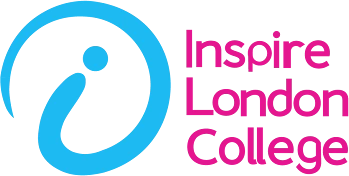Businesses of all sizes need Human Resource Management to contribute to company strategy and handle the often-daunting responsibility of managing their employees. Many businesses rely on HR professionals to ensure the company is running smoothly and that employees are content.
“Human resource is not a thing we do-It is a thing that runs our businesses” _Steve Wynne
Human resource is the set of human capital, skills, knowledge, and abilities. It has been defined in several ways, with among others the combination of “people who are available for work” and “the quantity or quality of labor” or “the role through which an individual interacts with his or her co-workers.”

Human Resource Management (HRM)
Human Resource Management (HRM) is how organisations identify, recruit, assess, develop and retain employees. It is a broad field with many distinct specialties. It includes compensation and benefits, recruitment, training and development, work-life balance, performance management, health and safety, labor relations, and the law in employment relationships.
The term “human resources” has been in use for at least 150 years. It has many common traits with modern management theory and practice, although it is distinct from them. An organisation is a system of interdependent parts that are attached. These parts are usually referred to as resources. Some resources, such as the land the organisation operates on, might be scarce or non-renewable. Others, such as human resources or information technology systems, might be plentiful and renewable.
So what are human resource and hr functions in organisations?
HR functions in Organisations
Human resource functions take care of all the people working in an organisation. These employees are also known as HR resources or employees. The HR function includes the organisational policies, procedures, activities, and processes concerned with identifying people who perform work for an organisation and seek to recruit, develop, manage, and retain them in the organisation.
HR department involves many functions, including recruitment, selection, orientation, and training. Another HR function is to assist in promoting the career development of employees through career advancement opportunities. This is particularly important for highly qualified workers who want to continue working beyond their retirement age.
The development of human resources is an area in which we need to do well as it is decisive in determining the success of our diversification program. Human resource operations contribute significantly to the success of an organisation. To function, employees require a wide range of skills, knowledge, and competencies that ensure the organisation meets its objectives. These skills are usually learned through formal education and training.
Importance of Human Resources
When it comes to human resources, organizations cannot function without them. The human resource includes all those in charge of an organisation to ensure that they maintain its operations and execute their duties as per the organisation’s direction. It is responsible for implementing company policies and procedures, recruiting new employees, training staff, and providing opportunities for managers and employees.
A company’s human resource department consists of the following:
- Recruiting, interviewing, selecting, and promoting staff members that suit organisational needs.
- Providing training to develop skills in organisations.
- Retaining and motivating the staff efficiently increases profit and minimise losses.
- Developing a succession plan for future human resources needs.
Role of HR Manager in Organisations
The role of the human resource manager is now complex. This is because today organisations are both dynamic and transient. The HR managers are now expected to lead change in the organisation, manage health care plans, establish training programs, developed new departmental policies, and more. As a result, it has become difficult for HR managers to do all these things simultaneously.

The advent of globalisation has also raised expectations of HR managers by exposing them to different cultures that require special consideration for handling certain kinds of work relationships.
HR Manager plays a vital role in:
- Conceptualising and formulating new business strategies
- Maintaining suitable time and working environment for employees
- Developing and producing an efficient work culture
- Providing Human Resources (HR) support to organizations
1. Conceptualising and formulating new business strategies
It is imperative for businesses today to have the correct strategic thinking to succeed in this ever-changing competitive business climate. However, it is difficult to know how to formulate new strategies and develop novel ideas because of the high number of pressures that HR managers face daily.
2. Maintaining a Suitable Time and working environment for Employees
Maintaining a convenient time and working environment for employees is one of the most critical work in an HR manager’s job. As an employee, you should be given sufficient time to complete tasks, whether it is during weekdays or weekends. On the other hand, managers should set up a professional environment with proper space and equipment.
3. Developing and Producing an efficient Work Culture
Developing and delivering an efficient work culture is not easy. It takes dedication, patience, and understanding to create a system that will produce the best possible results for any company.
Different states have their employment laws for things like minimum wage requirements, overtime laws, and benefits. A human resources manager is tasked with complying with these various state regulations while also providing a work culture that is attractive to potential employees. When the HR manager is the only person keeping both of these aspects in balance, it can be challenging to make some of the decisions necessary to keep the business running smoothly.
4. Providing Human Resources (HR) support to Organisations
The HR manager has considerable resources to give to the organisation. They can offer their own time, perspective, and knowledge to meet the organisation’s human resource needs. They will need to inform others on how best this process can be done so that both parties can utilise these resources effectively.
The Role of Human Resource Management in Organisations
A human resources manager is responsible for overseeing all operations that ensure a business’s workforce is both productive and happy. This requires viewing people as assets, not financial burdens for the company. As with any other asset, a talented workplace is an asset that can be strategically used to add value to an organisation.
Strategic Role of HRM
The human resource management organization holds significant importance within a company. Its careful analysis is essential as it impacts not only the employees working directly within it but also those associated with it. The primary objective of human resource management is to ensure sufficient workforce at all levels of the company to achieve efficient operations, ultimately leading to increased productivity and profits. By providing job security and meeting the needs of workers, it creates a conducive environment for enhanced performance.
Developing Skills for Future
At all levels of the organisation, managers and HR professionals work together to develop employees’ skills to meet the organisation’s future needs and improve employees’ long-term success. However, to be successful, HR managers must have different skill sets than other types of management. Therefore, HR managers need to prioritise developing these skills to prepare for any challenges ahead.
Building Loyalty and Commitment
HR Professionals have also suggested strategies to help increase their employment commitment to their work. It begins with the recruiting process and matches employees with the right positions. Once you are on the payroll, be committed to your employer and do your best for them. Keep an open mind about work challenges.
Staying Current and Competitive
Human resource management requires strategic planning to address the changing needs of an employer and a constantly shifting competitive job market. As the head of HR, you are responsible for designing and implementing programs to help your organization stay ahead of the game.
It is no surprise that the function of HR managers, who are responsible for developing an understanding of their organization’s needs and making sure they are met, is growing. This means that today’s HR managers need to know just as much about marketing, sales, IT management, technology management–and more–as they do about compensation and benefits.
The HR Department is responsible for several challenging tasks. They oversee the recruitment and selection process, ensuring that the right candidates are hired for the organization, provide guidance, and also aim to enhance employee performance and productivity. These multifaceted responsibilities showcase the integral role of the HR Department in managing talent and fostering growth within the organization.
The tasks of a human resource department can be challenging to complete. To be more effective at what they do, managers must have business acumen and a solid understanding of their goals and needs. Managers of the human resource department must also know the industry, including current trends and readjusting strategies to succeed in today’s competitive environment.
If you’re aspiring to advance your career as an HR manager, it’s crucial to pause and reflect on your desired future work culture. Creating a thriving work culture hinges on setting clear expectations for everyone across all levels of the company. Take the time now to shape the foundation of success for your professional journey.


